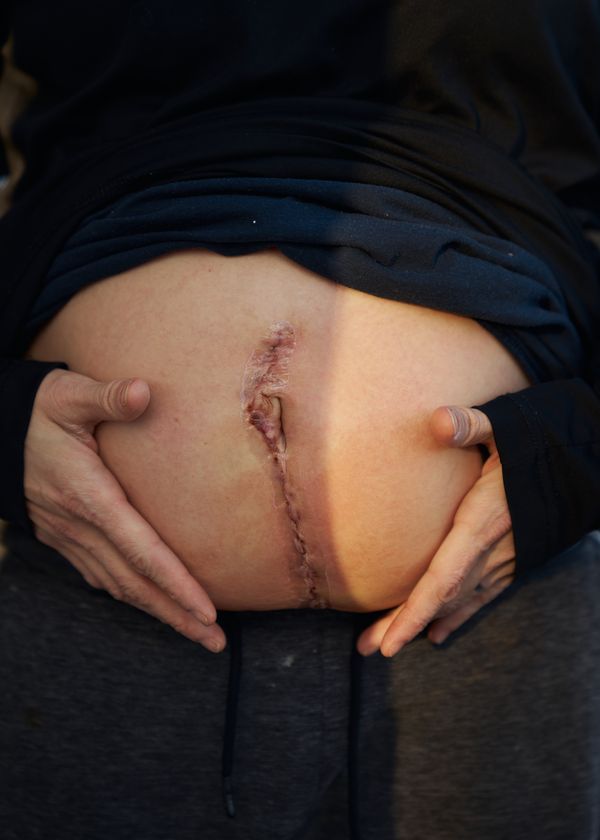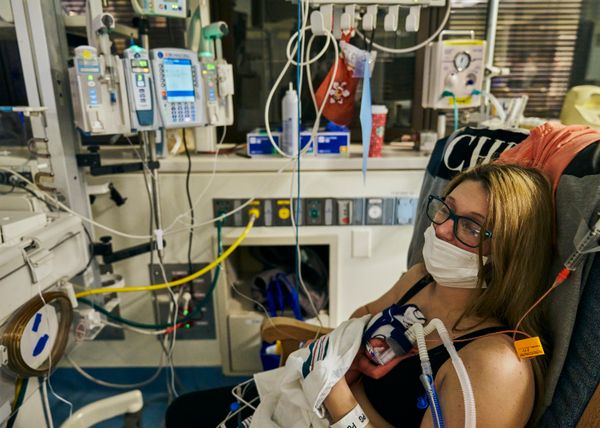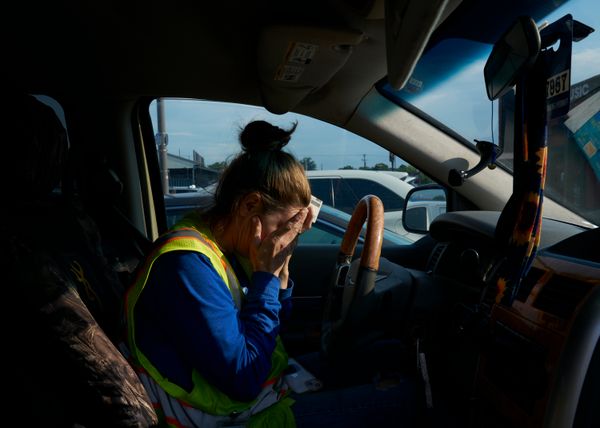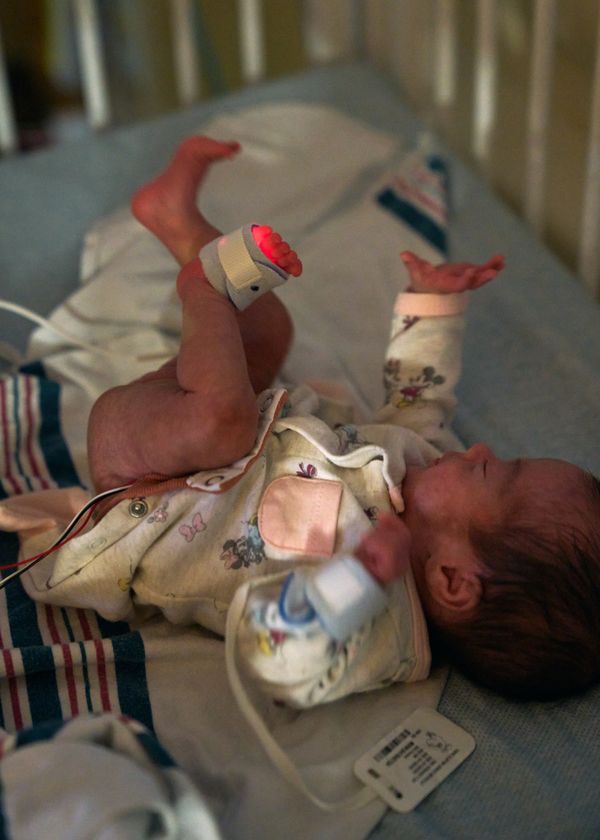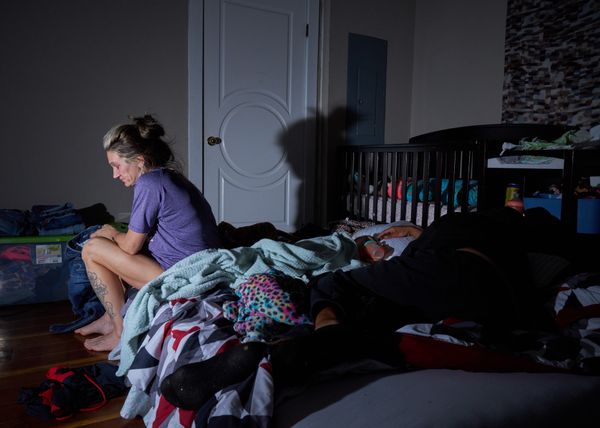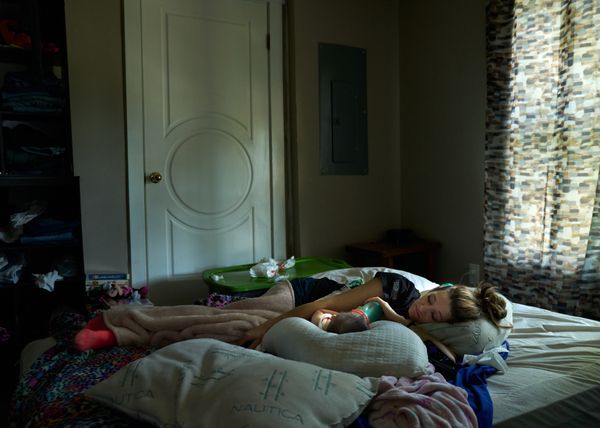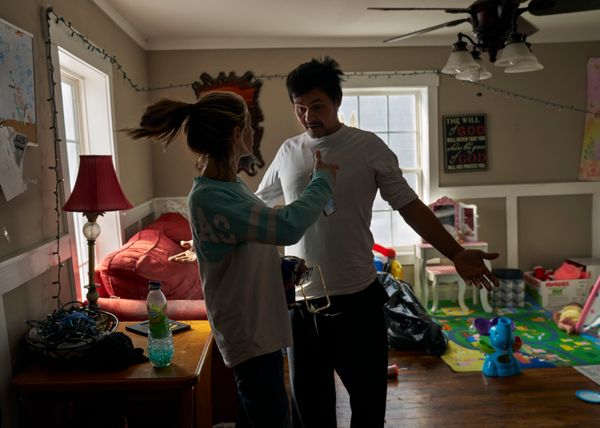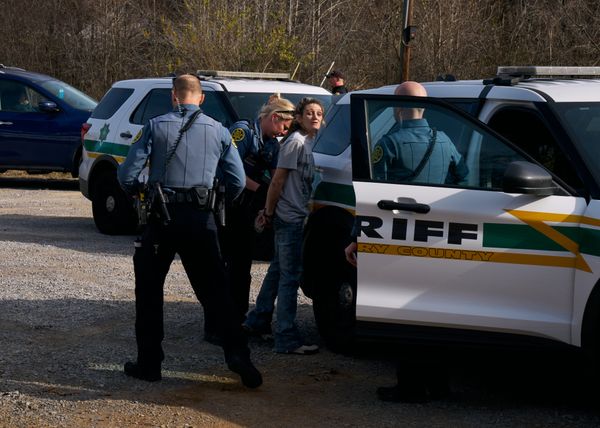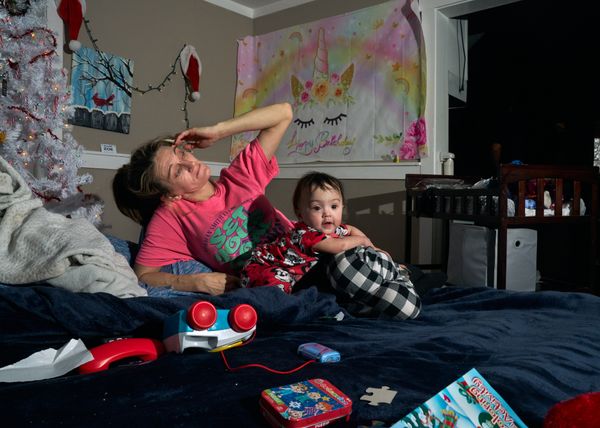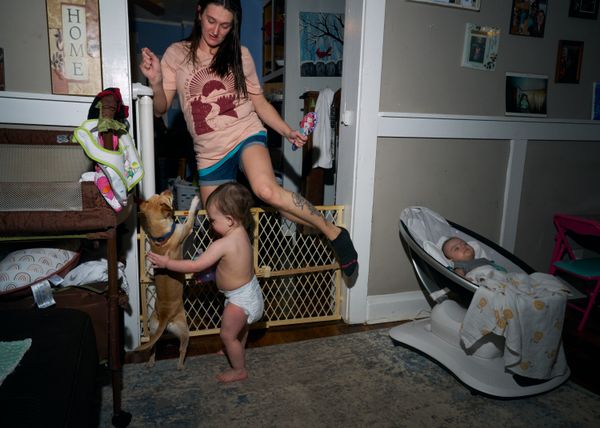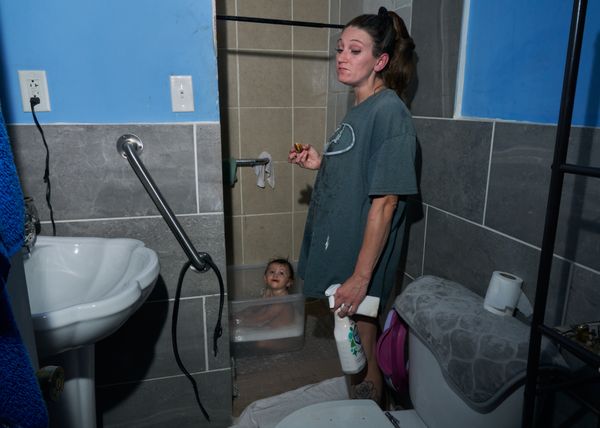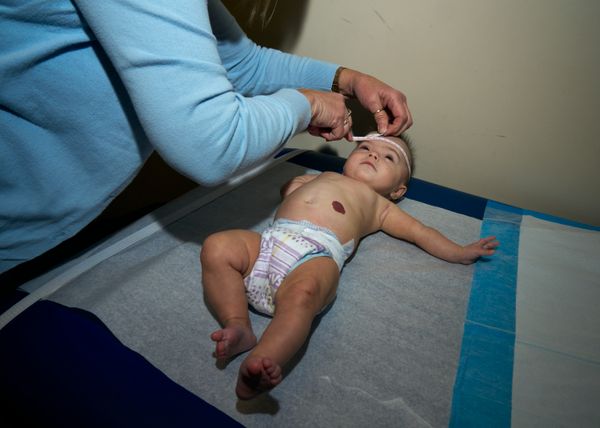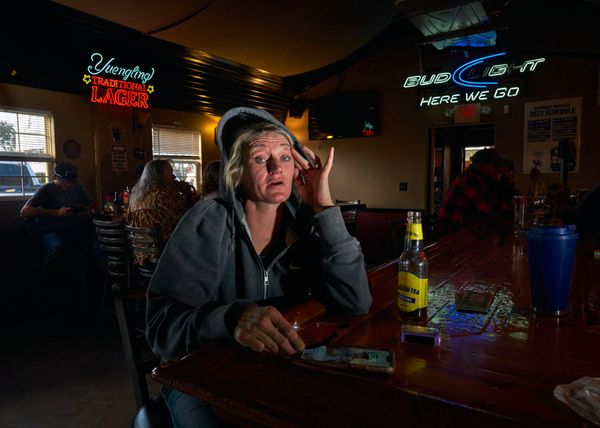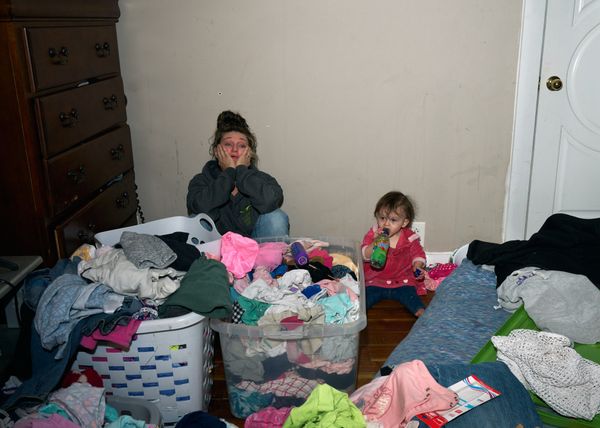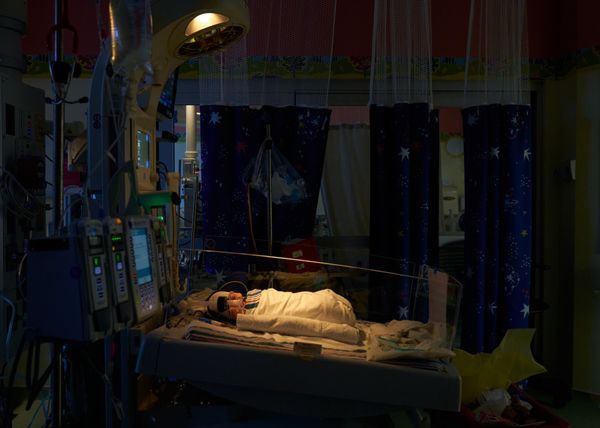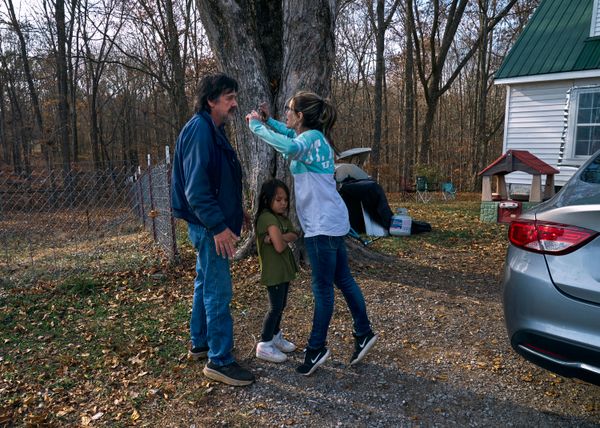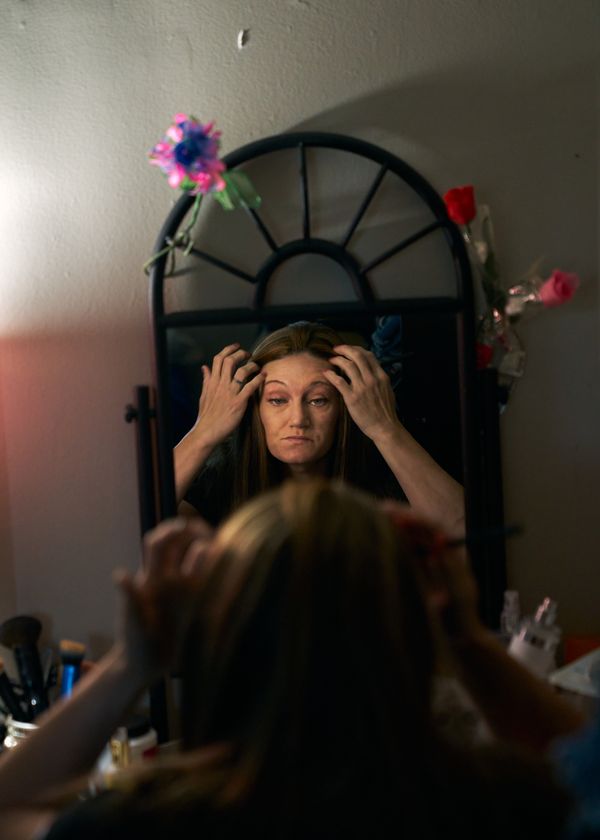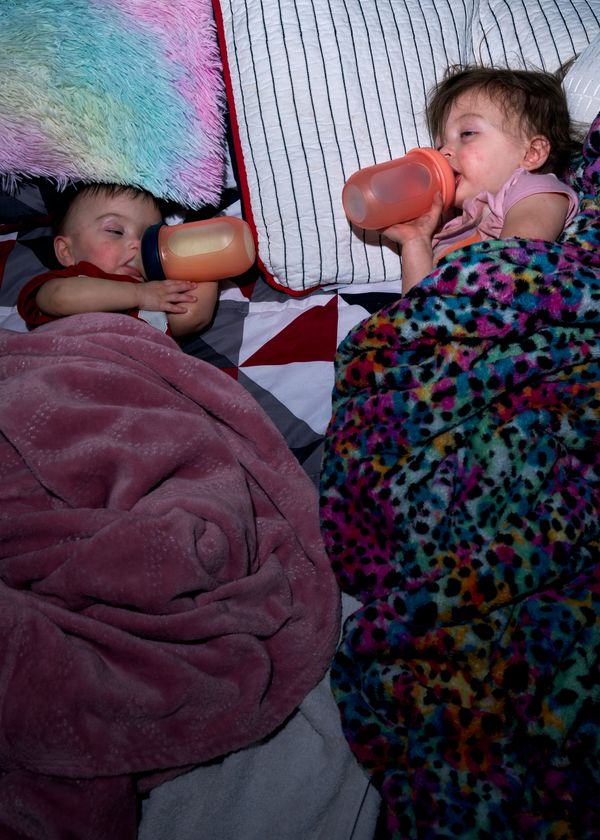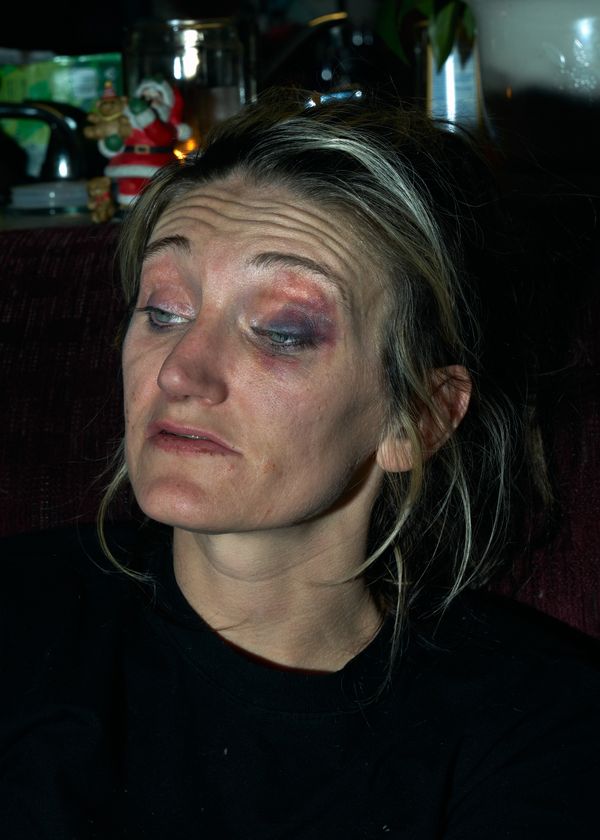After a Denied Abortion
-
Dates2022 - Ongoing
-
Author
- Location Clarksville, United States
-
Recognition
-
Recognition
These photographs depict the aftermath of a woman forced into a life-threatening pregnancy after the United States Supreme Court overturned Roe v. Wade and triggered Tennessee's total abortion ban to go into effect in Tennessee.
In August of 2022, the Supreme Court overturned Roe v. Wade. This historic decision immediately triggered a total abortion ban in my home state of Tennessee. I was struck by the fact that the same lawmakers who voted to ban abortion had also voted against a social safety net to support mothers living below the poverty line. In the following months, I began a body of work exploring how these two realities intersect.
When Mayron Michelle Hollis got pregnant at 31, she was three years sober after first getting hooked on drugs at 12. The state had taken away three of her children, and she was fighting to keep the fourth, a baby girl who was only months old. Amid the turmoil, Mayron learned she was pregnant again. But this time, doctors warned her that her fetus might not make it. The embryo was implanted in scar tissue. There was a high chance the pregnancy could rupture, blowing open her uterus and killing her. The baby, if she survived, would come months early and face serious medical risks. Doctors advised Mayron to terminate her pregnancy. But that same week, the Supreme Court overturned Roe v. Wade and triggered Tennessee's total abortion ban to go into effect. Women with means could flee the state. But those like Mayron, with limited resources and lives entangled with the child welfare and criminal justice systems, could not. The same state that questioned her fitness to care for her four children forced Mayron to risk her life to have a fifth.
I met Mayron the day after she gave birth to a 1.5-pound baby girl after doctors scrambled to save her and the baby's life. This work cisualizes what life looks like caught inside a system of failed policies that have left Mayron without food and diapers and at constant threat of eviction from her home, all while caring for the fragile life of her baby Elayna. These photographs expand our understanding of the complex and consequential history of government control over women's bodies by exploring what happens when women are forced to have babies without the resources and support to care for them.
